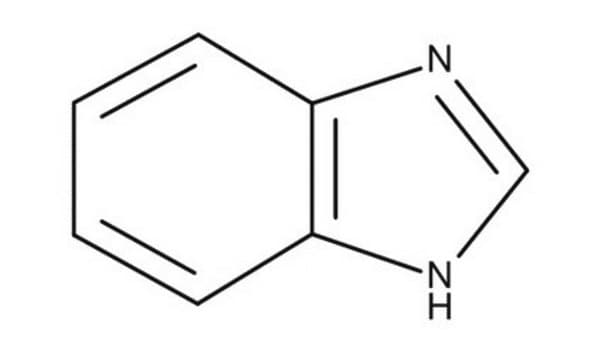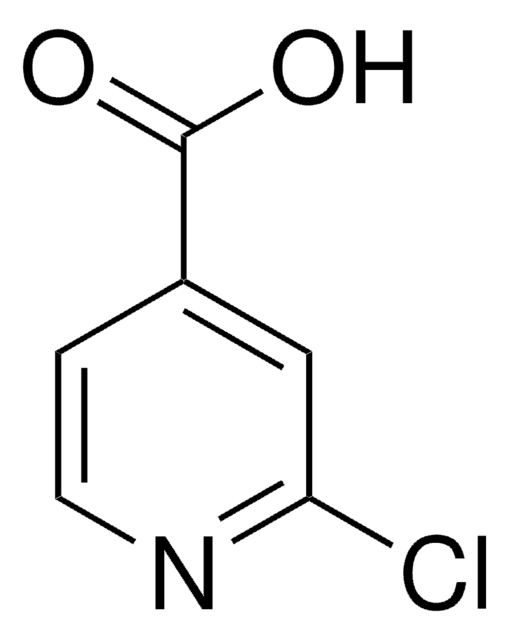All Photos(1)
About This Item
Linear Formula:
H2NC(O)C6H4CO2H
CAS Number:
Molecular Weight:
165.15
EC Number:
MDL number:
UNSPSC Code:
12352100
PubChem Substance ID:
NACRES:
NA.22
Recommended Products
Assay
97%
form
solid
mp
140-143 °C (lit.)
functional group
amide
carboxylic acid
SMILES string
NC(=O)c1ccccc1C(O)=O
InChI
1S/C8H7NO3/c9-7(10)5-3-1-2-4-6(5)8(11)12/h1-4H,(H2,9,10)(H,11,12)
InChI key
CYMRPDYINXWJFU-UHFFFAOYSA-N
General description
Phthalamic acid can be synthesized from the reaction between ammonia and phthalic anhydride by a modified Auger′s method. Kinetic studies of the intramolecular carboxylic-group assisted hydrolysis of amide bond of phthalamic acid provided the value of pseudo-first order rate constant (kobs) as 5.1×10-5sec-1 at pH 1.3-1.8 and 35°C. It undergoes hydrolysis about 105 times faster than benzamide.
Application
Phthalamic acid may be used to synthesize anthranilic acid via reaction with sodium hypochlorite.
Signal Word
Warning
Hazard Statements
Precautionary Statements
Hazard Classifications
Eye Irrit. 2 - Skin Irrit. 2 - STOT SE 3
Target Organs
Respiratory system
Storage Class Code
11 - Combustible Solids
WGK
WGK 3
Flash Point(F)
Not applicable
Flash Point(C)
Not applicable
Personal Protective Equipment
dust mask type N95 (US), Eyeshields, Gloves
Choose from one of the most recent versions:
Certificates of Analysis (COA)
Lot/Batch Number
Don't see the Right Version?
If you require a particular version, you can look up a specific certificate by the Lot or Batch number.
Already Own This Product?
Find documentation for the products that you have recently purchased in the Document Library.
CCXXXVII.?The preparation of phthalamic acids and their conversion into anthranilic acids.
Chapman E and Stephen E.
Journal of the Chemical Society, 127, 1791-1797 (1925)
?General acid-base catalysis in the intramolecular hydrolysis of phthalamic acid1?
Bender L M
Journal of the American Chemical Society, 79(5), 1258-1259 (1957)
The hydrolysis and cyclization of some phthalamic acid derivatives.
J Brown et al.
Journal of the American Chemical Society, 88(19), 4468-4474 (1966-10-05)
Mireille Canal-Raffin et al.
Particle and fibre toxicology, 4, 8-8 (2007-09-22)
Pesticides, in particular folpet, have been found in rural and urban air in France in the past few years. Folpet is a contact fungicide and has been widely used for the past 50 years in vineyards in France. Slightly water-soluble
Yoshiyuki Ogino et al.
Chirality, 29(6), 282-293 (2017-04-20)
Enantiomeric thalidomide undergoes various kinds of biotransformations including chiral inversion, hydrolysis, and enzymatic oxidation, which results in several metabolites, thereby adding to the complexity in the understanding of the nature of thalidomide. To decipher this complexity, we analyzed the multidimensional
Our team of scientists has experience in all areas of research including Life Science, Material Science, Chemical Synthesis, Chromatography, Analytical and many others.
Contact Technical Service








